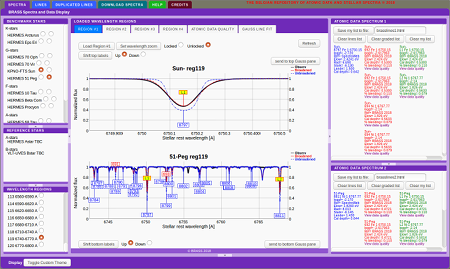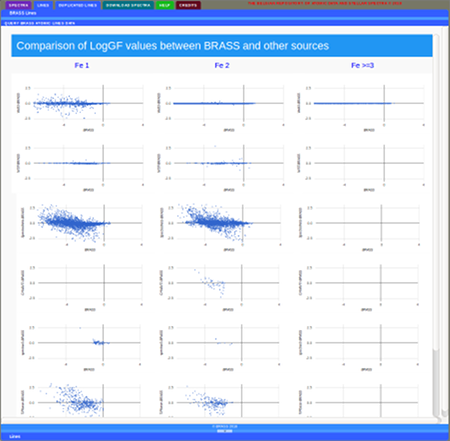The Belgian Repository of fundamental Atomic Data and Stellar Spectra (BRASS)
The Belgian Repository of fundamental Atomic Data and Stellar Spectra - BRASS is a Brain.be Networking Project of the Belgian Federal Science Policy Office. The project is a large scientific collaboration on astrophysics research of the Royal Observatory of Belgium (ROB), the University of Leuven (KUL), the European Southern Observatory (ESO) at Paranal, Chile, and the Université Libre de Bruxelles (ULB). The BRASS Follow-up Committee involves the University of Antwerp (UA) and the Vereniging voor Sterrenkunde (VVS) in the networking project.
Accurate atomic line transition data are fundamental input parameters in astrophysics. They are crucial for the development of complex models that describe, analyse and explain stars, their internal structures, atmospheres, and evolution in relation to the stellar environment. Uncertainties and errors in adopted fundamental atomic data may systematically propagate throughout all fields of astrophysics, from star formation to galactic evolution.
It is very difficult to obtain accurate fundamental atomic data of astrophysical interest from laboratory measurements. There are only a limited number of repositories that offer these important atomic data values. The atomic repositories are often complementary rather than redundant, and can provide incomplete or inaccurate information. Important quality assessments of the provided atomic data values are scarce (and mostly absent), which very much complicates the validation of results that follow from their application.
The BRASS project takes a first, although crucial, step towards removing all systematic errors in atomic input data required for quantitative stellar spectroscopy. BRASS will thoroughly assess the quality of fundamental atomic data available in the largest repositories by comparing very high-quality observed stellar spectra with state-of-the-art theoretical spectra. Whereas this type of study has currently been carried out for very few stars at the time, and mostly limited to comparable spectral types assembled from various sources, BRASS will combine, analyze, and offer the community the first uniform large collection of benchmark and reference stars. This study will be more complete than any other to date in terms of coverage of the stellar parameter space, as well as the spectral wavelength coverage.
The BRASS project combines the scientific know-how of several national and international research groups in quantitative stellar spectroscopy. It unites complementary expertise required for addressing various aspects related to observational and theoretical astrophysics, atomic physics, and software development. To accomplish these goals the project utilizes a large sample of stellar spectra collected from Belgian and European observing facilities over the last two decades. The datasets are exceptional in many respects and will be accessible to the scientific community at large.
More information on the Brain.be BRASS networking project, its data interface and science publications are available at:
http://brass.sdf.org

